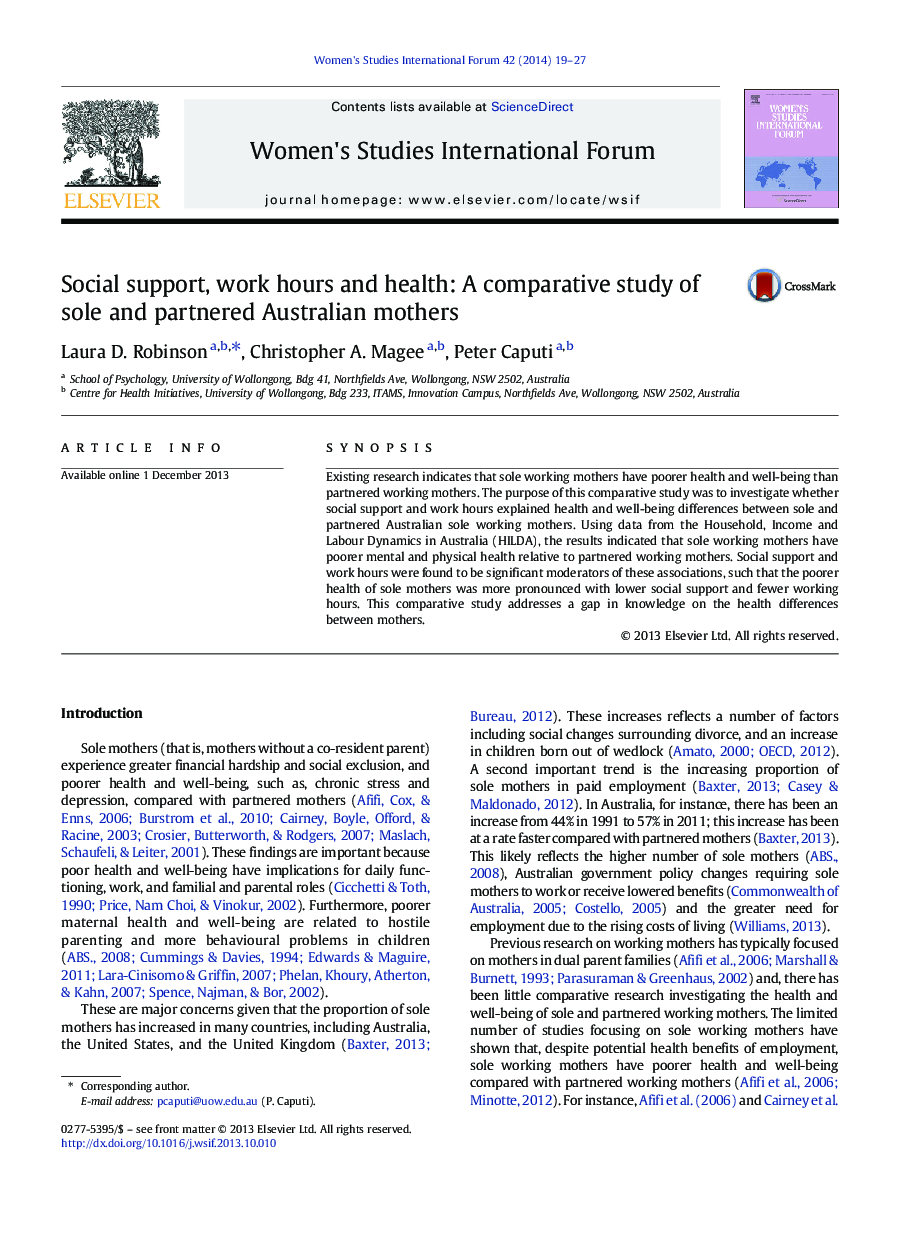| Article ID | Journal | Published Year | Pages | File Type |
|---|---|---|---|---|
| 376255 | Women's Studies International Forum | 2014 | 9 Pages |
•A comparative study of sole and partnered working mothers' health and well-being•We examine the role of social support and work hours of mothers' health and well-being.•Sole mothers had poorer health and lower social support than partnered mothers.•Social support moderated the association between marital status and health.•Sole mothers working more than full time had better physical health.
SynopsisExisting research indicates that sole working mothers have poorer health and well-being than partnered working mothers. The purpose of this comparative study was to investigate whether social support and work hours explained health and well-being differences between sole and partnered Australian sole working mothers. Using data from the Household, Income and Labour Dynamics in Australia (HILDA), the results indicated that sole working mothers have poorer mental and physical health relative to partnered working mothers. Social support and work hours were found to be significant moderators of these associations, such that the poorer health of sole mothers was more pronounced with lower social support and fewer working hours. This comparative study addresses a gap in knowledge on the health differences between mothers.
